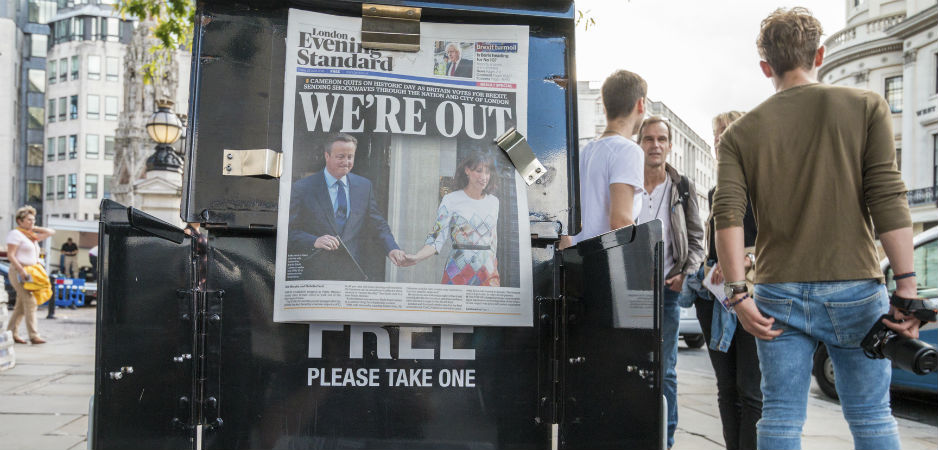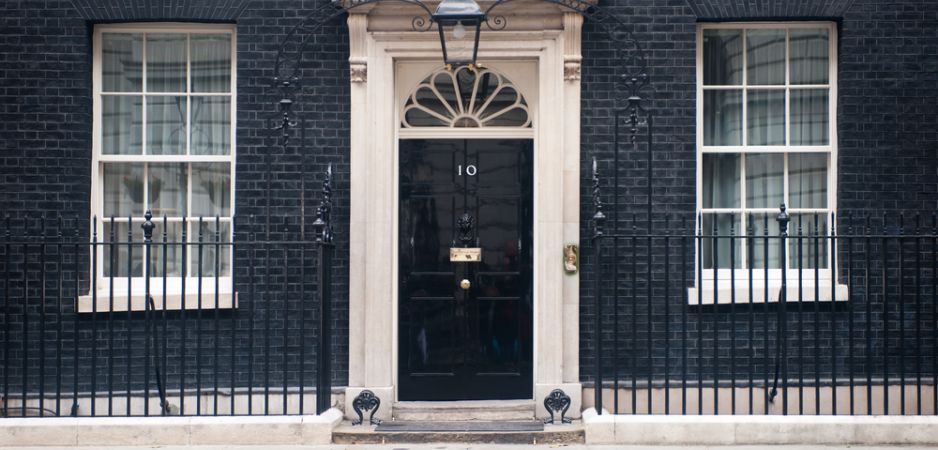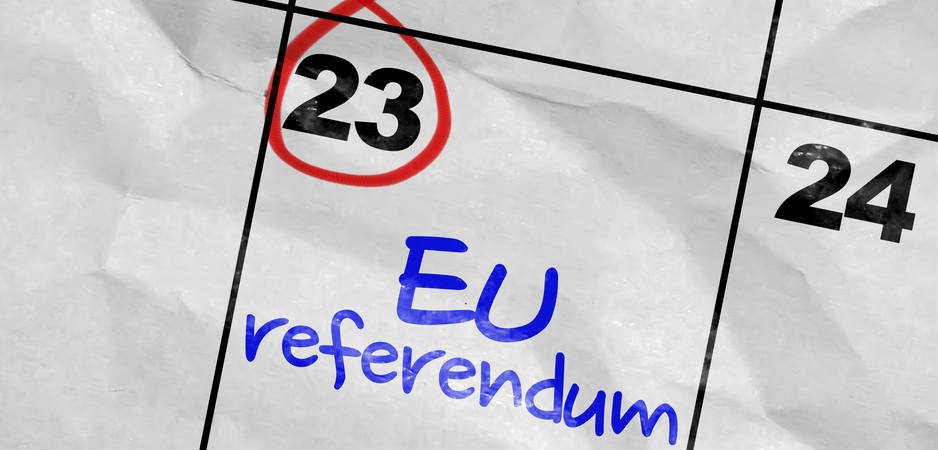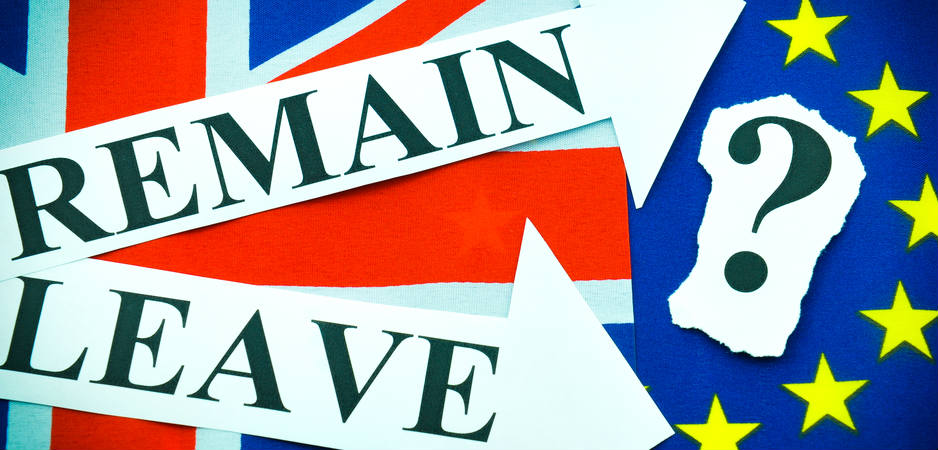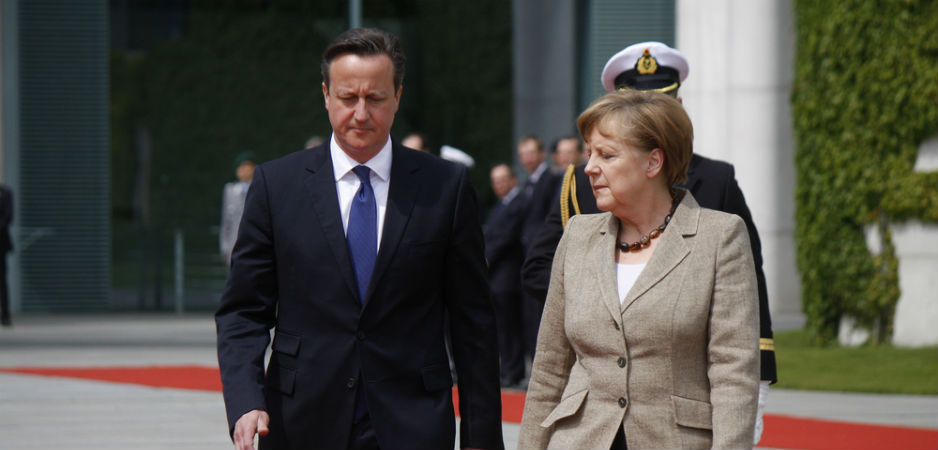Consult with Parliament before acting on Brexit, a court tells Prime Minister May. Experts delve into the implications.
Fresh uncertainty clouds British Prime Minister Theresa May’s plan to begin negotiations on the United Kingdom’s exit from the European Union (EU). The British High Court recently ruled that May’s government must consult with Parliament before proceeding on the Brexit negotiations.
Olivier Chatain, professor of strategy and business policy at the HEC Paris business school, and a senior fellow at Wharton’s Mack Institute of Innovation Management, and Michelle Egan, a professor at American University’s School of International Service, discuss the potential implications of that ruling. They spoke on the Knowledge@Wharton show, part of Wharton Business Radio on SiriusXM channel 111.
Here are five takeaways from their discussion.
More Uncertainty
The British High Court ruling creates “a bit more uncertainty” on when Article 50 of the European Union will be invoked, says Chatain. The British government has indicated that it would appeal the decision. The question now is whether May could work out a new deal with Parliament, assuming the British Supreme Court rules in her favor that she does have the authority to invoke Article 50, he adds.
The hope was that May would be able to stick to her deadline of March 2017 to begin the withdrawal negotiations, before the French and the German elections. “There is skepticism as to whether that deadline would be met or not,” says Chatain. The French presidential election will be held in April and May 2017, while the German federal election is set for the August to October period. Under these circumstances, he doesn’t expect Brexit to take effect before March 2019.
Egan foresees legal challenges from Scotland and Northern Ireland to bring clarity to their roles in the negotiations. “This is a period of legal, political and economic uncertainty.”
Economic Impact of Brexit
Much of the currency impact has already occurred with the fall of the pound, notes Chatain. Nissan of Japan has secured an assurance from the British government, guaranteeing that any damage caused by Brexit will be taken care of in some way. In October, Nissan said it would build two car models at its Sunderland plant in the UK following government assurances, thereby protecting 7,000 jobs.
Chatain describes the process leading to Nissan’s decision as an “opportunistic way of dealing with the issue.” He points out that there isn’t as yet a comprehensive plan to deal with the consequences of Brexit on investments, and he worries about a lack of investment over the next two years until clarity emerges on the key issues impacting it.
According to Egan, future trade agreements between the UK and the EU must provide reasonable access for specific industrial sectors. She sees the auto sector being impacted because of how global supply chains affect it and also subsidy-dependent agriculture. “Remember, 45% of [the UK’s] exports will be affected if we don’t have access to the single market.”
Finding Common Ground
Members of Parliament (MP) for the Conservative Party know that their own constituencies, in large numbers, voted to leave, says Egan. However, Labour Party leaders have expressed differing views on Brexit and there is little consistency among them. She says: “You see a variety of views coming here about ‘what do we want?’”
According to Egan, finding common ground amid differing viewpoints would be a challenge for May. “Different people want very, very different things. That’s what [creates] so much uncertainty,” she says. The “hard Brexit” group wants a removal [of the UK] from the single market, but those in the Scottish National Party want a single market for Scotland. She also notes that those in the Labour Party want membership of the customs union, access to the single market, limits on the number of migrants and an end to the authority of the European Court of Justice.
Chatain says it isn’t clear that May’s government has sorted out issues over Brexit within itself, too. That could also be because the British government doesn’t want to show its hand too early, he speculates.
Brexit Referendum Will Stand
The High Court ruling does not negate the referendum result at all, notes Egan. It involved a legal question of the extent of executive authority—could the British government trigger Article 50 without parliamentary approval, she explains. “It emphasizes the importance of parliamentary sovereignty.” However, it does complicate matters for May because members of Parliament may want to include specific issues in her negotiations with the EU.
 Fair Observer provides you deep and diverse insights for free. Remember that we still have to pay for servers, website maintenance and much more. So, donate now to keep us free, fair and independent.
Fair Observer provides you deep and diverse insights for free. Remember that we still have to pay for servers, website maintenance and much more. So, donate now to keep us free, fair and independent.
After Article 50 is triggered, there will be a two-year process of negotiations to withdraw. That will be followed by negotiations on a new trade deal. Some expect May to strike a “transitional deal” that would extend the current regime until a new order is thrashed out, Eagan notes.
A Brexit Bill
If the British government loses its appeal in the Supreme Court, it would be forced to introduce a primary legislation or a “Brexit bill,” says Egan. That would be subject to parliamentary discussion, where members could make various demands on concessions and other requirements they want in the Brexit negotiations.
A reality check on Britain’s view on its bargaining strengths with the EU is also called for. “There is a tendency in Britain to think that they would be leading the charge,” even as the 27 remaining members of the EU have a big say in how things work out, she notes.
*[This article was originally published by Knowledge@Wharton, a partner institution of Fair Observer.]
The views expressed in this article are the author’s own and do not necessarily reflect Fair Observer’s editorial policy.
Photo Credit: Xavier Arnau
For more than 10 years, Fair Observer has been free, fair and independent. No billionaire owns us, no advertisers control us. We are a reader-supported nonprofit. Unlike many other publications, we keep our content free for readers regardless of where they live or whether they can afford to pay. We have no paywalls and no ads.
In the post-truth era of fake news, echo chambers and filter bubbles, we publish a plurality of perspectives from around the world. Anyone can publish with us, but everyone goes through a rigorous editorial process. So, you get fact-checked, well-reasoned content instead of noise.
We publish 2,500+ voices from 90+ countries. We also conduct education and training programs
on subjects ranging from digital media and journalism to writing and critical thinking. This
doesn’t come cheap. Servers, editors, trainers and web developers cost
money.
Please consider supporting us on a regular basis as a recurring donor or a
sustaining member.
Support Fair Observer
We rely on your support for our independence, diversity and quality.
Will you support FO’s journalism?
We rely on your support for our independence, diversity and quality.










